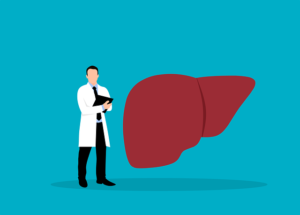Welcome to our blog post on the hidden truths behind diabetes! In this eye-opening article, we aim to dispel common myths and reveal the often-overlooked facts about this prevalent condition. Whether you’re a curious social media user or someone personally affected by diabetes, get ready to uncover the truth and gain a deeper understanding of this complex disease. Buckle up, and let’s dive in!
Diabetes is a condition where the body has trouble controlling the amount of sugar in the blood. There are two types of diabetes. Type 1 diabetes is when the body’s own defense system attacks and destroys the parts of the body that help control blood sugar. Type 2 diabetes is when the body doesn’t make enough or can’t use the hormone that controls blood sugar.
It’s like a traffic light that helps cars go or stop. In type 1 diabetes, the traffic light is broken and stuck on red, causing problems. In type 2 diabetes, the traffic light doesn’t work properly and the cars don’t know when to stop or go.
If diabetes isn’t managed well, it can cause other health problems like heart disease and nerve damage. But by checking blood sugar levels, eating healthy meals, being active, and taking medicine if needed, people with diabetes can stay healthy.
Diabetes is a major health concern in India, with both type 1 and type 2 diabetes being prevalent. Here are some important points about the status of diabetes in India:
- High Prevalence: India is known as the diabetes capital of the world, with a large number of people living with diabetes. Over the past few decades, there has been a significant increase in the prevalence of diabetes in the country.
- Dominance of Type 2 Diabetes: Type 2 diabetes accounts for the majority of diabetes cases in India. This form of diabetes is often linked to lifestyle factors such as sedentary behaviors, unhealthy eating habits, and rising obesity rates.
- Increase in Diabetes Cases: The number of diabetes cases in India has been steadily rising due to various factors, including changes in dietary habits, urbanization, and an aging population.
- Challenges in Detection and Awareness: Managing diabetes in India is challenging due to a lack of awareness, particularly in rural areas. Many individuals with diabetes are either undiagnosed or lack access to adequate healthcare facilities.
- Complications and Burden: Diabetes-related complications such as cardiovascular diseases, kidney problems, neuropathy, and retinopathy impose a significant burden on the healthcare system and the overall economy.
- Gestational Diabetes: Gestational diabetes, occurring during pregnancy, is also a concern in India and affects a significant number of pregnant women.
Diabetes, a prevalent chronic condition that affects millions of people worldwide, is a complex disease accompanied by numerous myths and misconceptions. These falsehoods can lead to misunderstandings and mismanagement of the condition. To dispel these misconceptions and uncover the truth, let’s delve into some of the hidden realities surrounding diabetes.
Myth: Diabetes is caused by consuming too much sugar.
Fact: While eating a lot of sugar can increase the chance of getting diabetes, it’s not the only reason. There are two types of diabetes: type 1, where the body’s immune system attacks the part of our body that helps control sugar levels, and type 2, which is influenced by our genes (something we inherit from our family) and how we live. Eating a lot of sugar can increase the risk of getting type 2 diabetes, but it’s not the only cause.
Myth: People with diabetes can’t eat sweets or fruits.
Fact: People with diabetes can eat sweets and fruits, but they have to be careful and not eat too much. They need to keep an eye on the sugar they eat and check their blood to make sure it’s not too high. It’s better to eat fruits with fiber, like apples or bananas, because they help slow down the sugar getting into our bodies.
Myth: Insulin cures diabetes.
Fact: Insulin is important for people with diabetes, especially for those who don’t make enough insulin on their own. Insulin helps control the sugar in our body. But, even with insulin, diabetes is a condition that needs to be managed for life. Insulin is an important medicine that keeps people with diabetes healthy, but it doesn’t make the diabetes go away.
Myth: Only overweight or obese people get type 2 diabetes.
Fact: It’s true that being overweight can increase the chance of getting type 2 diabetes, but it’s not the only factor. Some people who have type 2 diabetes are not overweight. Other things, like our family history (what we inherit from our parents), our age, and our ethnic background can also play a role in getting type 2 diabetes.
Myth: Diabetes is not a serious disease.
Fact: Diabetes is a serious condition that needs to be taken seriously. If we don’t manage it well, it can cause many problems. It can hurt our hearts, our kidneys, our eyes, and even our legs. That’s why it’s important to get regular check-ups and take care of our diabetes every day.
Myth: People with diabetes can’t participate in physical activities or sports.
Fact: People with diabetes can absolutely play and do sports! In fact, it’s great for them. Exercise helps their bodies stay healthy and strong. But they have to work with their doctor to make sure they do the right exercises and stay safe.
Myth: Diabetes is contagious.
Fact: Diabetes is not something you can catch like a cold. You can’t get it from touching or being close to someone with diabetes. It’s something that happens inside a person’s body because of how their body works.
Myth: Gestational diabetes is not a significant concern.
Fact: When a mommy has gestational diabetes while she is pregnant, it can cause complications for both her and the baby. It can make the baby grow too big or come out too early. It can also make it more likely for the mommy and the baby to have diabetes later on. So, it’s important for the mommy and the doctor to take care of it during the pregnancy.
These messages can function as reminders, motivational advice, or educational material to aid in the management of diabetes.
- “Stay on the right path! Remember to regularly monitor your blood sugar levels and take prescribed medications. Your well-being should be a top priority. #DiabetesCare”
- “Stay active, stay well! Engaging in regular exercise is beneficial for diabetes management. Take a walk, dance, or practice yoga. Keep moving! #DiabetesTips”
- “Healthy eating is crucial! Opt for whole grains, vegetables, and lean protein. Avoid sugary beverages and snacks. You can do this! #DiabetesDiet”
- “Never skip meals! Consistent eating helps stabilize blood sugar levels. Make thoughtful meal plans for improved diabetes control. #DiabetesSupport”
- “Water is your ally! Stay hydrated to support your body and manage diabetes. Drink water throughout the day. #DiabetesWellness”
- “Keep a close watch on your feet! Perform daily checks for any cuts or sores. Proper foot care prevents complications. #DiabetesAwareness”
- “Sleep well, feel well! Aim for 7-9 hours of restful sleep each night. It’s essential for managing diabetes. #DiabetesHealth”
- “Reduce stress, embrace life! Managing stress aids in controlling blood sugar levels. Practice deep breathing or meditation. #DiabetesMindfulness”
- “Connect and share! Join local diabetes support groups for encouragement and advice. You’re not alone on this journey. #DiabetesCommunity”
- “Remember, you have the power! Stay positive, stay determined. You can effectively manage diabetes and lead a fulfilling life. #DiabetesEmpowerment”



